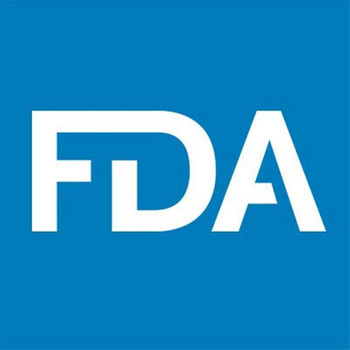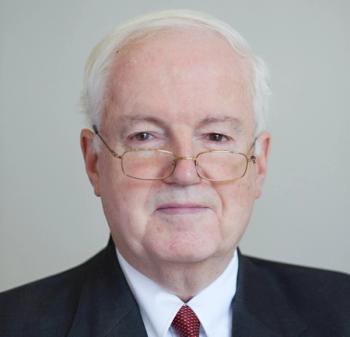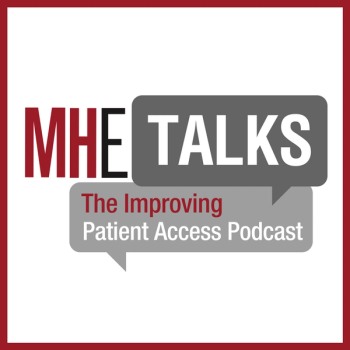
New Mexico Gov. Michelle Lujan Grisham and former Surgeon General Vivek Murthy appear to be the frontrunners for HHS secretary in the Biden administration.

New Mexico Gov. Michelle Lujan Grisham and former Surgeon General Vivek Murthy appear to be the frontrunners for HHS secretary in the Biden administration.

FDA okayed the first drug for positron emission tomography (PET) imaging of prostate-specific membrane antigen positive lesions in men with prostate cancer.

Nearly two-thirds of U.S. patients are likely to switch to a new healthcare provider if their current health provider doesn’t meet their expectations for managing COVID-19 concerns.

The drug is the first FDA-approved therapy for these rare genetic diseases.

In a time of lockdowns and concerted efforts to avoid exposure to COVID-19, telehealth is not only the hottest topic in healthcare, but also a boon to providers attempting to treat behavioral health patients in a holistic and cost-effective way.

The continuous battle in cancer research has unfortunately fallen a bit to the backseat due to healthcare's main focus on beating COVID-19 wildfires. To bring its needed attention back up on the ladder, Marie Lamont, president and COO of Inteliquet, a clinical trial software company, shares what took place in the drop of oncology-related activity and what can be done to improve.

Customer experience is everything, especially for healthcare businesses. However, there seems to be a gap between healthcare providers and their consumers.

FDA approves several drugs to treat rare conditions in both cancer and metabolic diseases.

For medical professionals, COVID-19 has amplified the importance of following the evidence.

Results of APOLLO and REACH3 trials are scheduled for presentation at the American Society of Hematology meeting next month are expected to garner attention.

Radiation oncologists across the country met virtually with members of Congress last week to urge lawmakers to pass legislation that will safeguard access to high-quality, value-based healthcare for people with cancer.

The second of a two-part story on 10 takeaways about the telehealth boom. The COVID-19 pandemic has been a bumpy ride in the U.S., featuring one controversy after another. One of the few areas of agreement is that the widespread adoption of telehealth amid the pandemic has been, by and large, a positive development.

Applying lessons from behavioral economics, health systems are using “nudges” to influence the choices clinicians make.


COVID-19 has amplified the growing importance of advanced practice providers as demands for healthcare increase and a national physician shortage looms.

The first of a two-part story on 10 takeaways about the telehealth boom. The COVID-19 pandemic has been a bumpy ride in the U.S., featuring one controversy after another. One of the few areas of agreement is that the widespread adoption of telehealth amid the pandemic has been, by and large, a positive development.

In this week’s episode, MHE's Briana Contreras spoke with Anthony Gabriel, M.D., MBA, chief operating officer at Radiology Partners. Anthony shared the importance of health entities having physicians in the C-Suite, or executive levels in their health organizations, as Radiology Partners does. He and Briana also discussed what type of training a health professional needs to get to this level and some decisions he’s made as a health professional in the C-Suite.

Like a marathon with runners you don't know who will come in first until the end, health plans and providers share a similarity when they look at all the patients/members whose chronic conditions have taken a back seat to battling the COVID-19 pandemic.

There’s some skepticism as programs to address social determinants of health proliferate. Some data are being collected.

Therapies that target lung cancer at the molecular level are proliferating — and so are the biomarkers for guiding their use.

FDA official says the approval is important because of the combination of the flu season and the COVID-19 pandemic.

Regeneron's investigational treatment was administered to President Donald Trump in October when he was treated for COVID-19.

In the early going, patients seeking the expensive, customized cancer treatments called CAR-T cell therapy had to go to an academic medical center. But that’s changing, as Duncan Allen, M.H.A., of the community cancer network OneOncology explains.

Leanne Berge, CEO of Community Health Plan of Washington in Seattle, talks to Managed Healthcare Executive about patient access challenges, COVID-19, telehealth, and health care disparities.

Health plans build strategies to ensure their beneficiaries have easy access to and receive vital immunizations.

If Pfizer's vaccine gets an emergency use authorization, it could reach sites designated by states within a day.

This week on Tuning into the C-Suite, listeners are tuning into the next feature of the Meet the Board Series where Managed Healthcare Executive Senior Editor Peter Wehrwein and Associate Editor Briana Contreras speak with MHE’s Board Member Kevin Ronneberg, M.D. Kevin is vice president and associate medical director for health initiatives at HealthPartners, an integrated, nonprofit provider and health insurance company located in Bloomington, Minnesota. During the conversation we got to learn more about Kevin, personally, and how he and his family are doing during the pandemic and his thoughts of the current issues healthcare is facing today.

Two newly approved antibody-drug conjugates and changes in radiation therapy lead the way.
